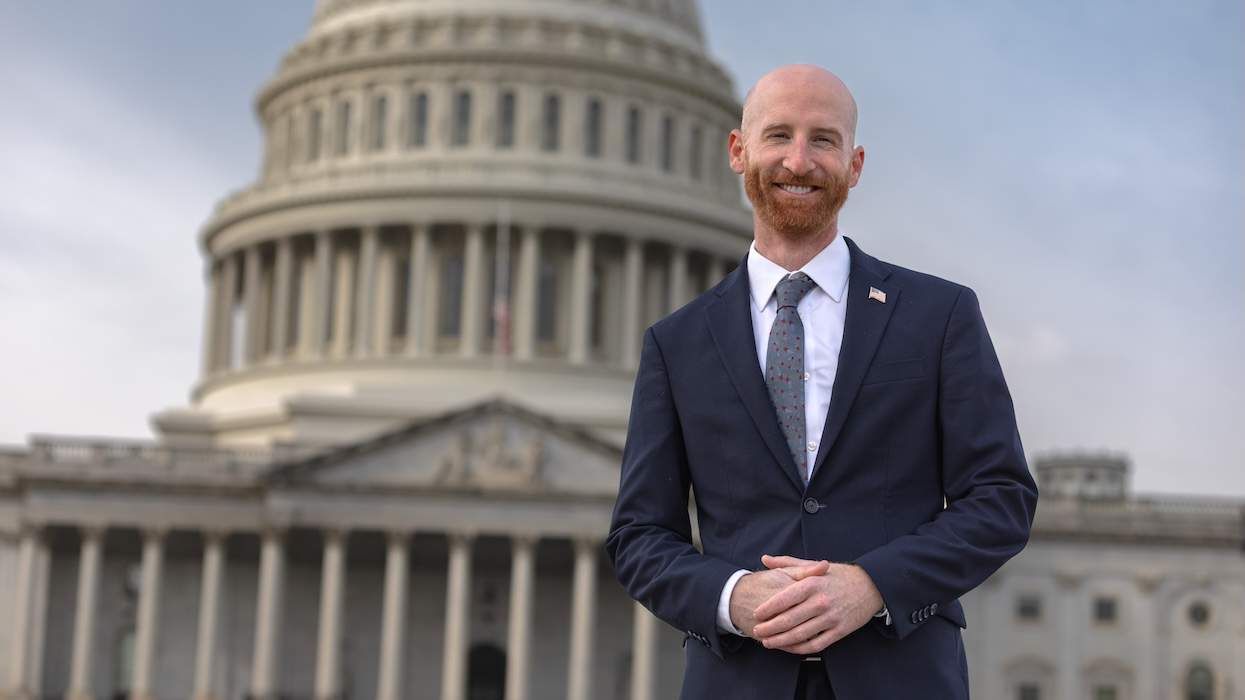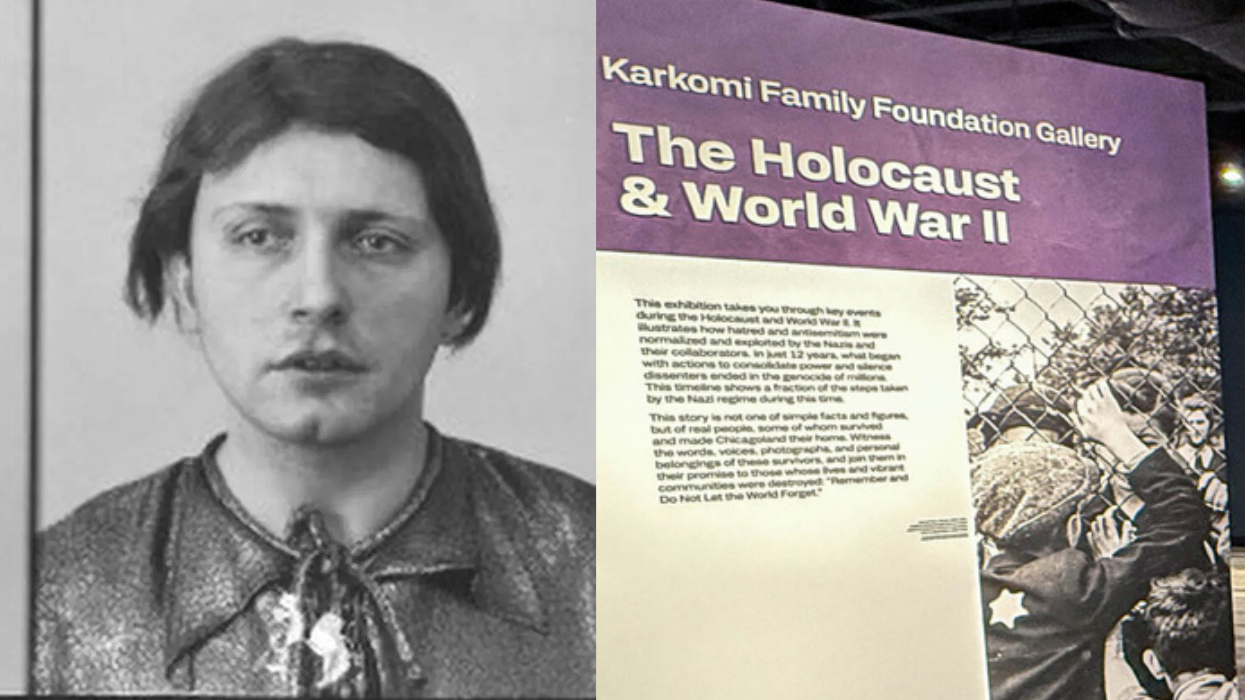While the 2008
presidential election long ago deflated confidence in
predictions, many observers agree that one thing seems
reasonably clear now as the long, competitive
Democratic primary season draws to a close: Hillary
Clinton's window is closing fast if it hasn't
already shut.
Obama is expected
to grasp the majority of pledged delegates after
Tuesday's contests in Kentucky and Oregon, and he has
now taken a lead in support from the decisive
superdelegates whom Clinton once dominated. Even if
Clinton herself never says die, some LGBT backers are
shifting their focus from whether she can still emerge
victorious to when and how she might withdraw from the
race.
The realization
that Clinton could not win the nomination happened
gradually for Cathy Renna, managing partner of Renna
Communications in Washington, D.C. A long-term
supporter who recalls the transformative, if
imperfect, impact Bill Clinton exerted on gay rights in the
early '90s, she also cites the former first
lady's commitment to child welfare and
women's issues. But Renna invokes the pragmatic
reality of the numbers as her reason for backing Obama
now.
"Really,
if you look at the map, she's in a lot of
trouble," she says. "You do the math,
and she's up against a lot of challenges, financial
and electoral. The reality is that he's way far
ahead of her on a number of different levels."
Still, Renna
declines to set a timeline for Clinton to exit, and she
dismisses the conventional theory that an extended campaign
might weaken the Democratic Party as it seeks to unify
before the general election.
"I think
Hillary needs to do what she feels is the right thing and
the best thing in terms of the people supporting
her," she says. "Playing it out to get
as many people involved as possible is not going to be a
huge detriment to Obama and his candidacy. People in
so many different states feel like they're
having an impact."
On the other
hand, Sara Whitman, a married mother of three and activist
in Newton, Mass., with a finance background, cites money as
the chief reason why she believes Clinton needs to
step aside immediately.
"I
don't think we can afford more of this race more than
anything else," says the self-described
suburban lesbian housewife who with her wife
contributed to Clinton up to the legal limits and enlisted
friends. "This race has cost us an enormous
amount of capital. It's time for it to end, and
for it just to be about Obama versus McCain."
Having been
impressed by Clinton's performance during the
televised Logo/Human Rights Campaign presidential
forum last August, Whitman definitively backed Clinton
in January, but withdrew her support after the
candidate suffered a romp in the North Carolina primary and
narrowly won Indiana on May 6.
"She
really needed to either lose North Carolina only by a
couple of points or win, and she needed to sweep Indiana
dramatically," says Whitman. "She
didn't do either of these things. At that
point, it felt like, 'Game's
up.'"
While the
transition to Obama has felt more like a relationship of
convenience than love at first sight for Whitman, she does
express baseline affection for him.
"I think
that he is going to definitely promote the general values of
the Democratic Party in a way that will make me
proud," she says. "I do believe that he
will appoint good Supreme Court justices, and that for
me, if there was a single issue, that would be it."
A focus on the
bigger picture in 2008 also motivates blogger Lane Hudson.
He remains ferociously committed to Clinton, having selected
her after John Edwards, for whom he was a delegate in
2004, failed to gain traction this fall. His feeling
is that she should continue to play out the race.
"Every
time she's had her back against the wall,"
Hudson says, "she's found a way to fight
back, even in the midst of unfair media coverage."
A strong critic
of Obama who calls his reference to Clinton as "Annie
Oakley" in Pennsylvania last month an instance of
sexism, Hudson says that no matter the outcome of
their contest, his emotions will not affect his vote
in November. "When Obama's the Democratic
nominee, I suppose I'll have to find a way to
figure out how to support him," he says.
"There's no way I'm going to support a
Republican, that's for sure."
Meanwhile, writer
and gay dad Terrence Heath worries about the harm
already potentially caused by the protracted primary
campaign.
"I'm concerned that continuing this process
only damages the party," says the sidelined
Dennis Kucinich voter who describes himself as moving
toward Obama. "We could be giving the Republicans
more and more to work with in the fall."
Specifically,
Heath, an African-American from the South, frets over
racial overtones in the Democratic campaign. He notes
Clinton's recent remarks about white voters,
the furor over statements Geraldine Ferraro made about
Obama in March, and early speculation about whether Obama
was a Muslim. His opinion is that the contest should
have ended after North Carolina.
"When I
can't tell the difference between a Democrat and Ann
Coulter, there's a problem," says Heath.
Although his words may shock, their emotion is rooted
in the concern that Democrats not waste the
unprecedented opportunity before them, especially in the
wake of the California marriage decision.
"I just
think this can be a really hopeful time for our community
and for the country beginning to move forward and
making the promises of this country available to
all," he says. "We could be moving in that
direction. I hope we can pull it off." (Julie Bolcer,
The Advocate)




































































Charlie Kirk DID say stoning gay people was the 'perfect law' — and these other heinous quotes